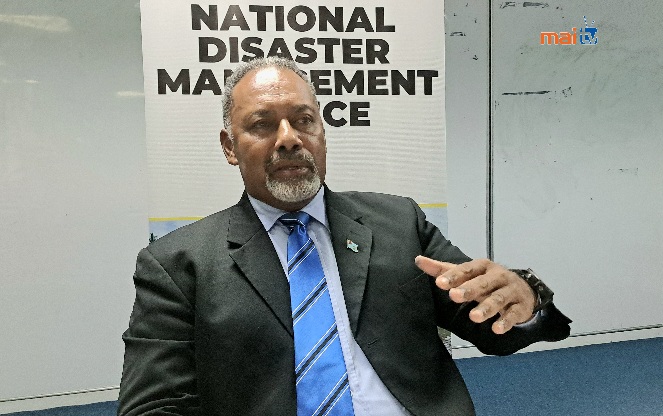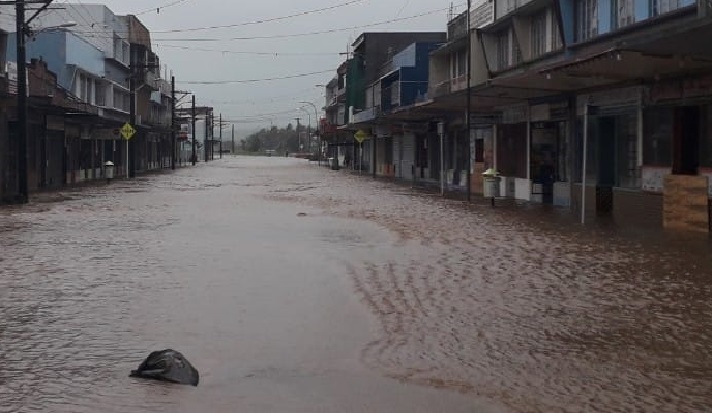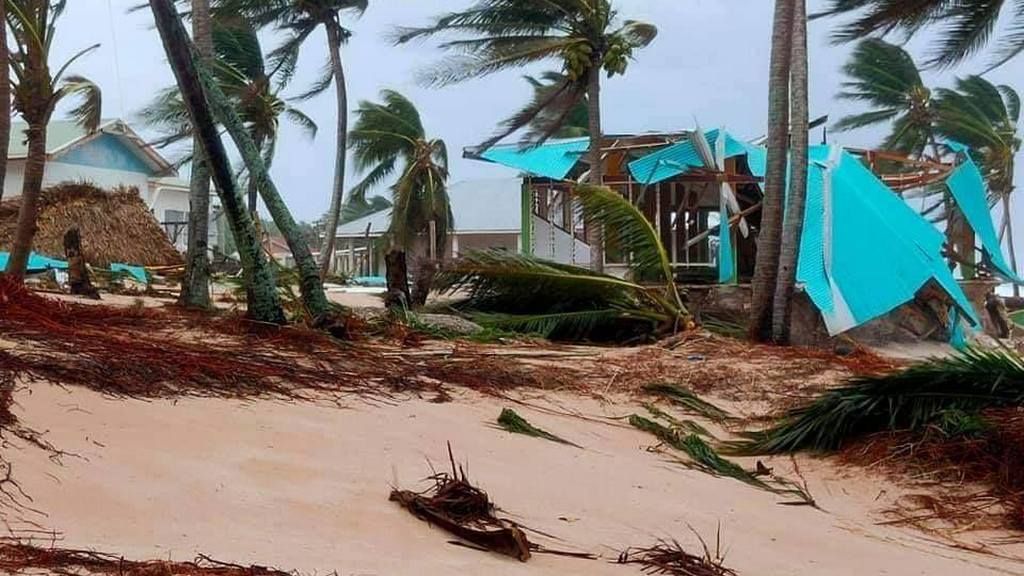As Fiji enters the 2023-2024 Cyclone Season, the government is calling on the public to take action: be prepared, stay vigilant, and heed warnings.
The forecast for the 2023-24 Tropical Cyclone (TC) season which starts this month through April 2024 anticipates the possibility of two to three TCs passing through Fiji’s Exclusive Economic Zone. Of these, one to two TCs could potentially escalate to severe Category 3-5 storms. The possibility of out-of-season TCs cannot be ruled out. People are also advised to recognise that it does not require a direct hit or a severe TC to pose a significant threat or cause substantial damage. Even tropical disturbances or depressions that do not reach TC intensity can bring about strong winds, gusts, heavy rainfall, landslides, and flooding.
Minister for Rural and Maritime Development and Disaster Management Sakiasi Ditoka reiterated that the warnings aim to provide the public with essential safety information rather than generate fear.
Community leaders, including Turaga Ni Koro and District Advisory Councilors, along with heads of families, are reminded that they play a critical role in disaster preparedness. They are encouraged to prioritise community and family readiness and ensure the most vulnerable members are well-prepared.
“I strongly urge you all to prioritise the readiness of your communities. Your proactive involvement can be a lifeline for the most vulnerable members within your respective communities. Ensuring that every villager and community member is well-prepared is not just a duty but a profound act of care and leadership. It is our collective responsibility as Fijians to pay close attention to these alerts, as they are issued in advance to prevent accidents and, most importantly, to save lives.
Minister for Rural and Maritime Development and Disaster Management Sakiasi Ditoka
“Please consider reinforcing your homes, and ensure your family members are familiar with emergency contact numbers and your family’s emergency plans. Preparedness is not an option; it’s a necessity, and it is through these proactive measures that we can mitigate the impact of disasters and protect our loved ones.”

Parents and guardians are urged to remain vigilant during adverse weather conditions, especially in monitoring children to prevent risky activities like swimming in flooded areas.
The government’s preparations are in full swing, with initiatives such as the Operational Readiness Check (ORC) evaluating the readiness of emergency operation centers and providing training for civil servants, NGOs, and volunteers. Key strategic assets are being prepositioned to minimize response times and provide swift assistance to communities in need. There is also a renewed request to all disaster practitioners in Fiji to update their information using online survey forms shared on social media platforms. The deadline for completing this ORC is this Friday.
The government is also working with Civil Society Organisations (CSOs) and Non-Governmental Organizations (NGOs) to conduct training on disaster risk reduction at the community level, empowering communities to be better prepared for disasters and equipping them with life-saving techniques and the ability to establish their own emergency committees. Fiji’s National Emergency Response Team (NERT) mechanism, designed to promote interoperability among first responders, has been established, ensuring effective coordination at all levels of disaster response.
Other measures put in place by the government as part of preparatory measures include the installation of a Flood Early Warning System at the community level, thanks to a $1 million grant from the National Disaster Management Research Institute of Korea. The project involved installing four rainfall stations, seven water level stations, and six warning posts in the flood-prone Ba Province catchment area. This system aims to enhance community safety, prevent people from being stranded during floods, and minimize risks to first responders. Plans are underway to extend the project to other flood-prone regions.

Fiji is also pioneering a pilot program in partnership with the United Nations for anticipatory action, aimed at preventing and mitigating the immediate impact of forecasted unusual tropical cyclones. The initiative has secured pre-arranged funding of up to $2 million from the Central Emergency Response Fund (CERF) if specific pre-agreed triggers for unusual events occur.
Fiji maintains over 1,000 Evacuation Centers (ECs) to provide shelter and protection during natural disasters. An assessment of these centers is underway, led by Divisional Commissioners and involving various stakeholders, to ensure they are ready for use in the upcoming cyclone season. Retrofitting efforts are also being carried out where needed.









